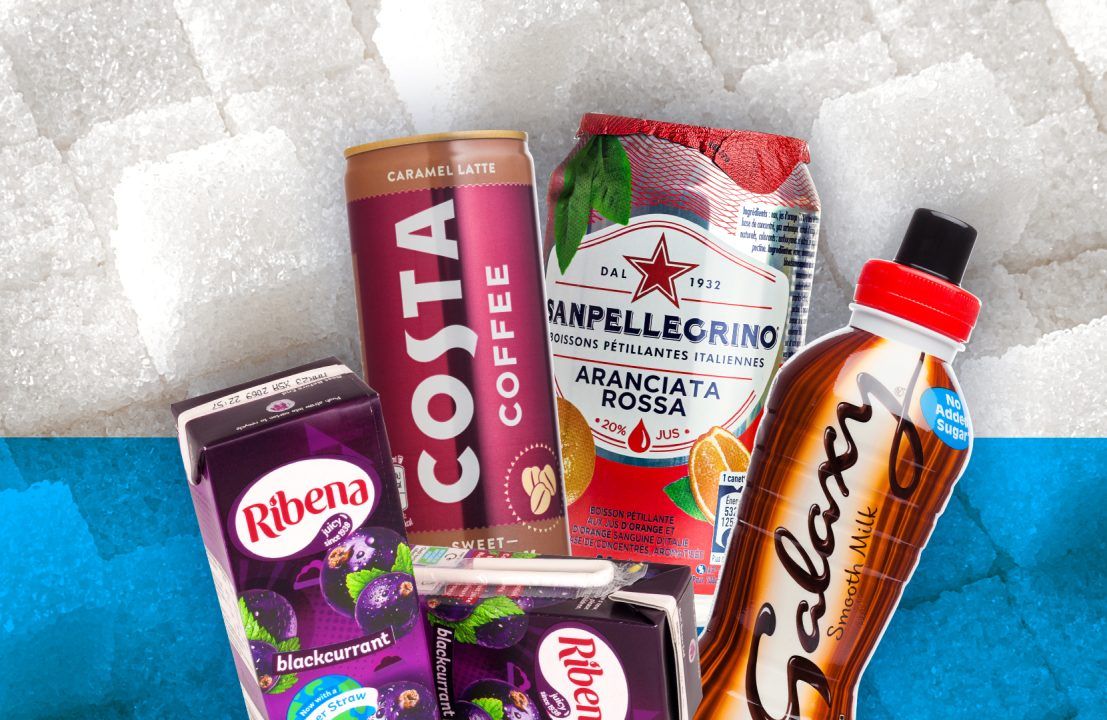The sugar tax applied to fizzy drinks could be extended to milkshakes and coffee drinks under UK Government proposals.
Plans to end the exemption from the levy for dairy-based drinks, as well as non-dairy substitutes such as oats or rice, were put out for consultation on Monday.
The tax would be applied to pre-packaged drinks cans of latte, flavoured milkshake drinks and cartons of milk alternatives.
Chancellor Rachel Reeves had said in her autumn budget last year that the Government would consider broadening the tax to include such drinks.
When was it first introduced?
The so-called Soft Drinks Industry Levy (SDIL) was introduced by the previous Tory government in April 2018 as part of its anti-obesity drive.
Government statistics released last September showed the tax has raised a total of £1.9bn since it first came into effect.
What is set to change?
The SDIL proposal seeks to reduce the maximum amount of sugar allowed in drinks before they become subject to the levy, lowering the threshold from 5g to 4g per 100ml.
Under the new plans, milk-based drinks would receive a ‘lactose allowance’, accounting for the naturally occurring sugars in milk.
The government says this could reduce daily calorie intake by an average of 1.2kcal in 19-64 year olds and 2.1kcal in 11-18 year olds to achieve health and economic benefits of around £4.2bn over 25 years.
How many drinks are likely to be affected?
Some 203 pre-packed milk-based drinks on the market, which make up 93% of sales within the category, will be subject to the tax unless their sugar content is reduced under the new proposals, according to Government analysis.
What impact has the sugar tax had on the industry?
Sugar content in soft drinks collapsed by 46% in the past five years as a result of the levy introduced by chancellor George Osborne in 2016, according to the Food and Drink Federation.
As a result of widespread reformulation by manufacturers after the initial announcement, 89% of fizzy drinks sold in the UK do not pay the tax.
The sugar tax is currently charged at £1.94 per ten litres on drinks with 5g to 7.9g sugar per 100ml and £2.59 per ten litres for drinks with 8g or more sugar per 100ml.
Which drinks are exempt?
The exemption for milk-based drinks was included because of concerns about calcium consumption, particularly among children.
However, the Treasury said young people only get 3.5% of their calcium intake from such drinks, meaning “it is also likely that the health benefits do not justify the harms from excess sugar”.
“By bringing milk-based drinks and milk substitute drinks into the SDIL, the Government would introduce a tax incentive for manufacturers of these drinks to build on existing progress and further reduce sugar in their recipes,” it said.
What are the criticisms?
The Institute for Economic Affairs, a right-wing free-market think tank, expressed concerns about the cost to consumers of the proposed changes.
They also argue that it has done little to tackle obesity in children.
UK sugar intake remains about double the recommended level, according to government statistics.
The most recent data from the Scottish Health Survey 2022 shows that 18% of children aged two to 15 are now at risk of developing obesity – the Scottish Government’s 2030 target is 7%.
Consumption of sugary soft drinks is also more than twice as high among the most deprived children compared to the least deprived – 29.1% compared to 13.1%.
“The sugar tax has been such a dramatic failure that it should be repealed, not expanded,” said Christopher Snowdon, head of lifestyle economics at the institute.
“Sugar taxes have never worked anywhere. What happened to Starmer’s promise to not raise taxes on working people?”
The Government consultation on the plans will run from Monday until July 21.
Follow STV News on WhatsApp
Scan the QR code on your mobile device for all the latest news from around the country





























